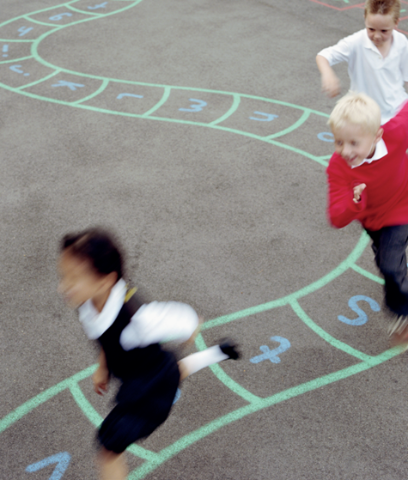- Research Project
Pedagogical responsibilities at day schools
The expansion of day schools leads to an interlocking of lessons and leisure time. The SNSF ‘AusTEr’ project explores the pedagogical responsibilities of those involved.
Factsheet
- Institute(s) Institute for Childhood, Youth and Family
- Funding organisation Swiss National Science Foundation (SNSF)
- Duration 01.01.2016 - 31.03.2020
- Head of project Prof Emanuela Chiapparini and Prof Patricia Schuler
-
Project staff
Dr Christa Kappler
Andrea Scholian -
Partner
ZHAW School of Social Work
Zurich University of Teacher Education
City of Zurich Department of School and Sport - Keywords Day school, Cooperation, Professionalisation, Leisure time, School, Social work
Situation
The demand for extra-curricular care has risen sharply in the last ten years and day schools are being expanded throughout Switzerland. As part of the «Day School 2025» pilot project, Zurich is the first Swiss municipality to start gradually introducing day schools city-wide. Students will benefit from the social and academic boost they get from eating lunch at school (depending on grade level) and participating in leisure activities.
Objectives
The project examines how (socio-)pedagogical goals might be achieved, the quality of these services, the financial framework conditions, and how to clarify and negotiate the pedagogical responsibilities of those involved.
Approach
Researchers from Bern University of Applied Sciences (BFH), Zurich University of Applied Sciences (ZHAW) and the Zurich University of Teacher Education (PHZH) interviewed school administrators, care managers and specialists, teachers, parents, course providers, school social workers and pupils in the city of Zurich before and one year after day schools were introduced.
Findings
So far, interprofessional cooperation has been limited to the organisational level, e.g. there are institutional exchange forums among staff on the pedagogical teams. However, there is room to expand knowledge about the other involved professions’ (socio-)pedagogical activities. When ‘cooperation’ is overly asymmetrical or one-sided, it makes sustainable, true interprofessional work together more difficult and can lead to conflict.
By more closely linking lessons and leisure time, day schools are expanding our understanding of education. For the time being, however, this is still based on stereotypical patterns that could use improvement – namely that teachers impart knowledge while caretakers work with pupils on building character and identity.
The children’s well-being in day schools depends on the quality of their food, contact with peers and the opportunity to participate in leisure activities at school. Certain deviations from ‘normal’ school behaviours are evident.
Eliminating homework at day schools demands the involvement of parents. Responses here varied depending on parents’ trust in the school and their children’s academic performance: some welcomed the lowered burden of responsibility on themselves while others felt they, as parents, had to monitor performance more closely.
Publications

